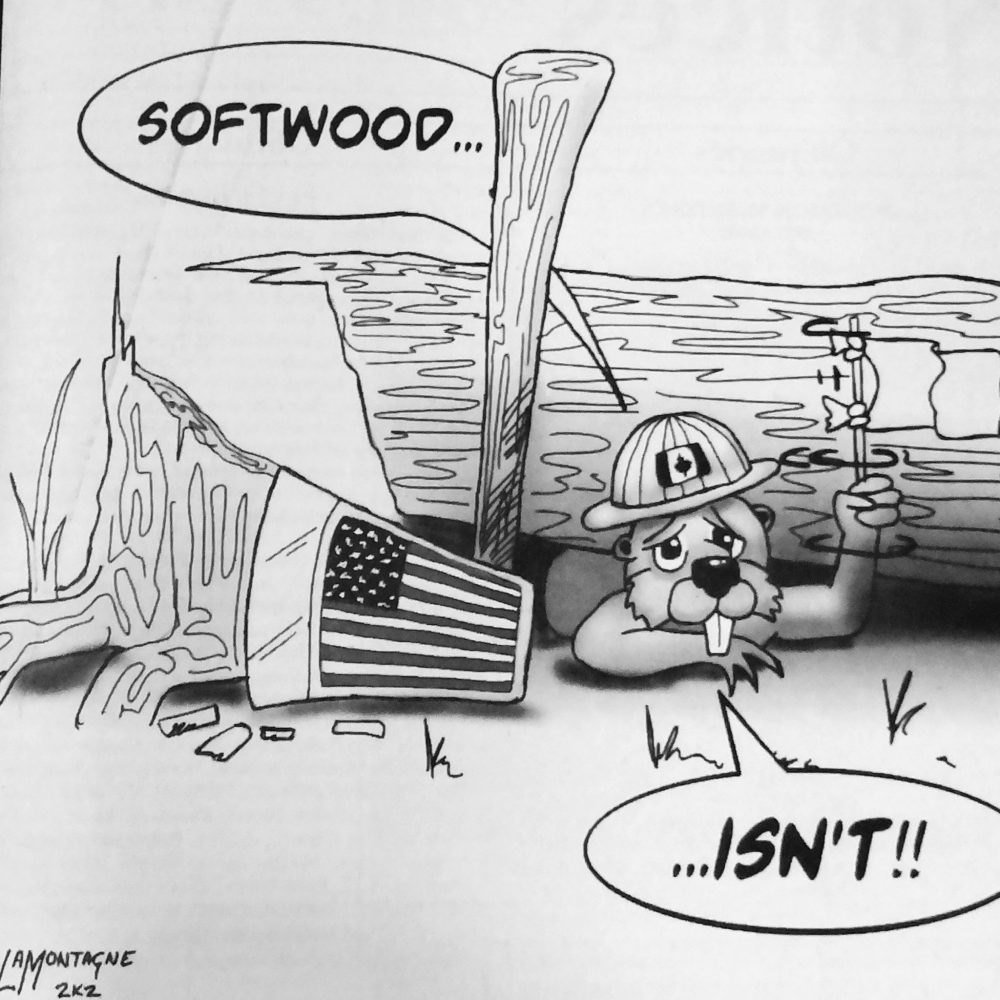COLUMN: Carillon Flashback, April 1, 2002: Canada at war with U.S. in softwood lumber dispute
Advertisement
Hey there, time traveller!
This article was published 11/03/2025 (295 days ago), so information in it may no longer be current.
Canada was attacked this past week as crudely and cavalierly as ever it has been in its some 135 years as an independent nation. The attack was launched from the south, by Canada’s erstwhile friend and ally, the United States of America.
And, make no mistake about it, casualties are already mounting and will continue to rise for the foreseeable future. Nationwide, some $10 billion in export softwood lumber sales is at stake.
W.J. (Bill) McCullough, president of the Nanaimo-Alberni PC Association, and an unsuccessful candidate in the 2000 federal election, shared his views on the current softwood lumber dispute with Carillon readers.

“The much-admired U.S. political system stands revealed today at its populist worst. To hell with your neighbour, if there’s a buck to be made, or, a vote to be bought or sold!”
McCullough believes this trade conflict may have been avoided if Joe Clark’s Conservatives had won the 2000 federal election.
“Unfortunately, the Liberals were returned to power and promptly went back to sleep.
However, recriminations now just don’t cut it. We all failed on this one. Rather than finger pointing, as both the Alliance and PC spokespersons did last week, let’s fix it.”
McCullough agrees with the current position of the federal government that the softwood lumber case must go to litigation. Canada will win the case, but in litigation, only lawyers make any money.
Winning before the WTO (World Trade Organization), or at a NAFTA (North American Free Trade Agreement) tribunal, just gives Canada the right to impose similar sanctions on U.S. exports to Canada.
Canada will then have the right to make it more expensive for Canadians to buy U.S. produce next winter or US-built cars, now made from parts manufactured in Ontario and Quebec.
McCullough says Canada must instead see this as an economic war to be waged and won on a number of seemingly unrelated fronts. The federal government needs to bring a degree of political coolness to Canada’s other relations with the US, he said.
Politically, the federal government should provide the kind of special consideration to Canadian forestry that it has, in the past, afforded Ontario’s auto industry, major corporations such as Bombardier, the Alberta oil industry, the East Coast fishery, and, prairie agriculture, to use a few obvious examples.
At the same time, the forestry and its labour force must reorganize. Nationally, Canada cuts too many trees to market productively. The industry is too big and inefficient. Canada must diversify its markets, and must harvest and market at sustainable levels by processing more of its lumber here.
Of course, the wave of a wand cannot make this all happen. Capital, business and labour have to find practical ways to work together, towards a common goal, McCullough says.
“ Economically, you and I, as individuals, have an even bigger chip to play. Walk into your local grocery store. You’ll find you have the choice of U.S. or Canadian tomatoes and potatoes. Guess which one you should buy, price, quality and all other considerations notwithstanding?”
When the green grocer finds his U.S. produce rotting, unsold on the shelves, his next buy will be from a B.C. hothouse or from a PEI or an up-Island warehouse.
“This summer, skip Disneyland in favour of BC’s interior or a holiday in Canada’s far north.”
The U.S. wants more of Canada’s energy output, but selling should be done to the national advantage. Make every barrel, every watt and every unit of energy sold to the U.S. as expensive as if it originated in Saudi Arabia. And, if this results in a surcharge to Canadians to keep within fair trading rules, rebate that surcharge back to Canadian taxpayers, much as Alberta has done for Albertans.
“And, we are at war. We didn’t start this war, but, if we stick together, we will win it. An earlier generation, in 1812, advanced up onto Queenston Heights to win one battle. I think our generation is made of the same stuff. It all comes down to a question of will.”
